As these ingredients are the base from which we start our various processes, it is paramount that we have researched and developed relationships through the supply chain to ensure that these products are the purest, healthiest and freshest. Because they get the sign of approval to be used in our process and finished products, they also then become a safe and convenient source of ingredients for many of our home based or commercial customers. We maintain our products in cool and non humid environments, to ensure that at all times they are at their freshest. Our selection is available in 500g and 1kg pouches, as well as bulk if required.
-
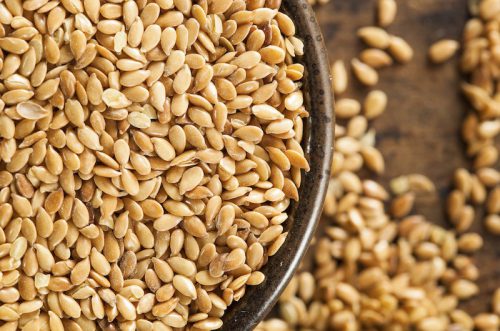 Botanical name: Linum usitatissimum. Also known as Linseed. Flax is a plant that has been grown since the beginnings of civilization. The plant was originally native to the Mesopotamia (Mediterranean) region and has been used as a food for well over 5,000 years. Flaxseeds are similarly shaped to sesame seeds but slightly larger. They comprise a hard, smooth shell and their colour extends from a deep golden to reddish brown depending upon whether the flax is of the Golden or Brown variant. Flaxseed has an earthy flavour with a subtle nutty edge. Sizes: 1kg / 25kg Minimum order: 10x1kg / 1x25kg
Botanical name: Linum usitatissimum. Also known as Linseed. Flax is a plant that has been grown since the beginnings of civilization. The plant was originally native to the Mesopotamia (Mediterranean) region and has been used as a food for well over 5,000 years. Flaxseeds are similarly shaped to sesame seeds but slightly larger. They comprise a hard, smooth shell and their colour extends from a deep golden to reddish brown depending upon whether the flax is of the Golden or Brown variant. Flaxseed has an earthy flavour with a subtle nutty edge. Sizes: 1kg / 25kg Minimum order: 10x1kg / 1x25kg
-
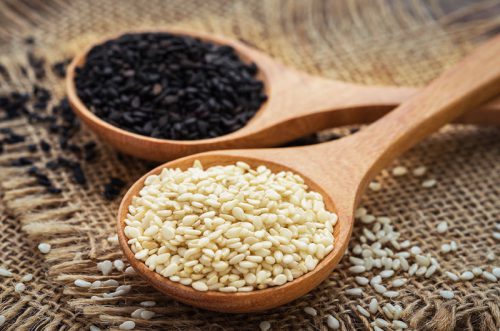 Botanical name: Sesamum indicum The sesame plant is now grown in almost every continent, with particular concentration in Africa and Asia. The seeds can vary in color, from white to dark brown to black. The sesame seed itself is enclosed in a small pod. The familiar expression ‘open sesame’ refers to the manner in which the pods explode to release the seeds contained inside. Due to their fragility in the pods, the seeds are generally still harvested by hand. Sesame seed is used as food (plain seeds or as Tahini), as an edible oil and in cosmetic preparations. Sizes: 1kg / 25kg Minimum order: 10x1kg / 1x25kg
Botanical name: Sesamum indicum The sesame plant is now grown in almost every continent, with particular concentration in Africa and Asia. The seeds can vary in color, from white to dark brown to black. The sesame seed itself is enclosed in a small pod. The familiar expression ‘open sesame’ refers to the manner in which the pods explode to release the seeds contained inside. Due to their fragility in the pods, the seeds are generally still harvested by hand. Sesame seed is used as food (plain seeds or as Tahini), as an edible oil and in cosmetic preparations. Sizes: 1kg / 25kg Minimum order: 10x1kg / 1x25kg
Recommended Applications
-
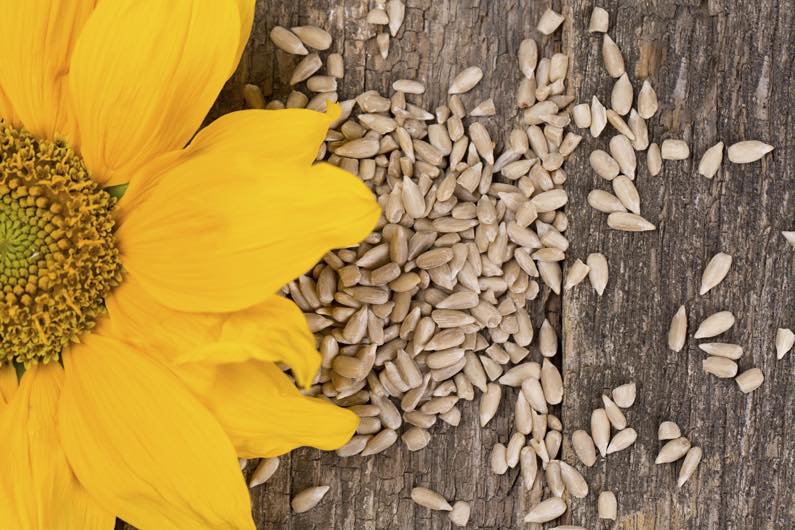 Botanical name: Helianthus annuus The colourful and joyful sunflower is known around the world for its natural beautifying of the countryside. This amazing plant can often grow to 6 metres tall, with its flower diameter as large as 75 centimetres. The seed-studded centre produces an attractive grey/green or black shelled seeds with black or white stripes. Within the seeds, lies the kernel, which is a white fleshy, edible component that has a mild nutty taste. Oil can be extracted from these kernels and comprises a dominant combination of monounsaturated (MUFA) and polyunsaturated (PUFA) fats. The oil is light in flavour and colour and provides high quantities of Vitamin E. Sizes: 1kg / 25kg Minimum order: 10x1kg / 1x25kg
Botanical name: Helianthus annuus The colourful and joyful sunflower is known around the world for its natural beautifying of the countryside. This amazing plant can often grow to 6 metres tall, with its flower diameter as large as 75 centimetres. The seed-studded centre produces an attractive grey/green or black shelled seeds with black or white stripes. Within the seeds, lies the kernel, which is a white fleshy, edible component that has a mild nutty taste. Oil can be extracted from these kernels and comprises a dominant combination of monounsaturated (MUFA) and polyunsaturated (PUFA) fats. The oil is light in flavour and colour and provides high quantities of Vitamin E. Sizes: 1kg / 25kg Minimum order: 10x1kg / 1x25kg
Recommended Applications
-
-
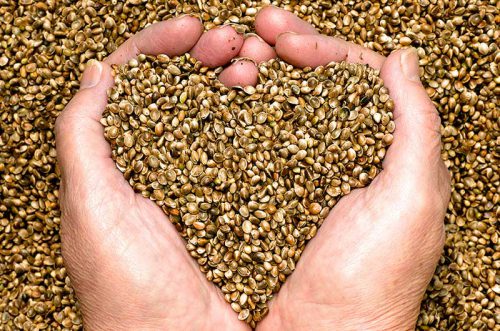 Botanical name: Cannibus sativa Hemp has been grown for centuries in Asia and the Middle East primarily for its fibre. Due to colonial and naval expansion in the early 1900’s, large quantities of hemp were used in the developing countries. In the mid 1900’s demand for this fibre fell significantly as the development of artificial fibres gained momentum. Hemp seeds can be eaten raw, ground into a meal, sprouted, made into hemp milk, prepared as tea and used in baking. The fresh leaves can also be consumed in salads. Sizes: 1kg / 25kg Minimum order: 10x1kg / 1x25kg
Botanical name: Cannibus sativa Hemp has been grown for centuries in Asia and the Middle East primarily for its fibre. Due to colonial and naval expansion in the early 1900’s, large quantities of hemp were used in the developing countries. In the mid 1900’s demand for this fibre fell significantly as the development of artificial fibres gained momentum. Hemp seeds can be eaten raw, ground into a meal, sprouted, made into hemp milk, prepared as tea and used in baking. The fresh leaves can also be consumed in salads. Sizes: 1kg / 25kg Minimum order: 10x1kg / 1x25kg
Recommended Applications
-
 Botanical name: Cucurbita pepo. L . Also known as Pepitas Pumpkin seeds are flat, dark green or black seeds with some clothed in a yellow-white husk. There are also varieties of pumpkins which produce seeds without shells. The pumpkin seed has a chewy texture and a subtle, sweet, and nutty flavour. Oftentimes, these seeds are roasted and seasoned as a tasty snack. The largest producing areas of pumpkins and pumpkin seeds are the United States, China, Mexico, and India. Sizes: 1kg / 25kg Minimum order: 10x1kg / 1x25kg
Botanical name: Cucurbita pepo. L . Also known as Pepitas Pumpkin seeds are flat, dark green or black seeds with some clothed in a yellow-white husk. There are also varieties of pumpkins which produce seeds without shells. The pumpkin seed has a chewy texture and a subtle, sweet, and nutty flavour. Oftentimes, these seeds are roasted and seasoned as a tasty snack. The largest producing areas of pumpkins and pumpkin seeds are the United States, China, Mexico, and India. Sizes: 1kg / 25kg Minimum order: 10x1kg / 1x25kg
Recommended Applications
-
-
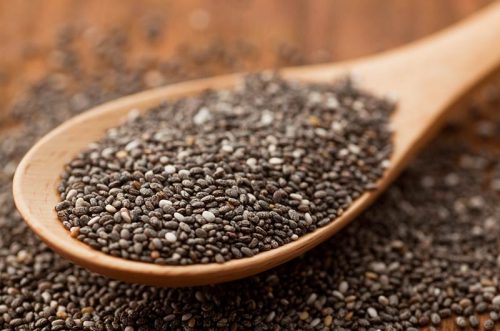 Botanical name: Salvia hispanica Chia is a species of flowering plant that belongs to the mint family, Lamiaceae, which is native to Central and Southern Mexico and Guatemala. Ground or whole chia seeds are still used extensively in Paraguay, Bolivia, Argentina, Mexico, and Guatemala for nutritious drinks and as a food source. Chia seeds provide a rich source of the B vitamins thiamine (B1) and niacin (B3) and a good source of the B vitamins riboflavin (B2) and folate (B9). They are also a rich source of the micro minerals - calcium, iron, magnesium, manganese, phosphorus, and zinc. Sizes: 1kg / 25kg Minimum order: 10x1kg / 1x25kg
Botanical name: Salvia hispanica Chia is a species of flowering plant that belongs to the mint family, Lamiaceae, which is native to Central and Southern Mexico and Guatemala. Ground or whole chia seeds are still used extensively in Paraguay, Bolivia, Argentina, Mexico, and Guatemala for nutritious drinks and as a food source. Chia seeds provide a rich source of the B vitamins thiamine (B1) and niacin (B3) and a good source of the B vitamins riboflavin (B2) and folate (B9). They are also a rich source of the micro minerals - calcium, iron, magnesium, manganese, phosphorus, and zinc. Sizes: 1kg / 25kg Minimum order: 10x1kg / 1x25kg
Recommended Applications
-
-
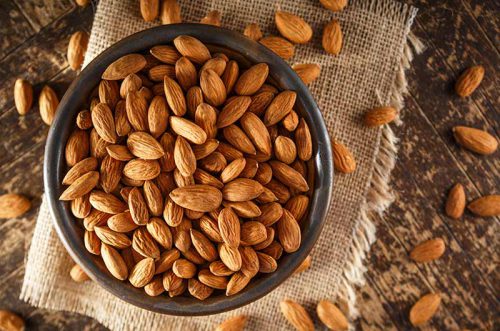 Botanical name: Prunus dulcis Almonds are technically the seeds of almond trees. They are closely related to cherries, plums and peaches. These nuts have been grown for thousands of years in the Mediterranean region, but today the US is the world’s largest producer. Almonds are a very good source of vitamin E, manganese, potassium, biotin, and copper, magnesium, molydenum, riboflavin (vitamin B2), and phosphorus. Over 70% of the fats within Almonds is of heart-healthy monounsaturated fat. Sizes: 1kg / 25kg Minimum order: 10x1kg / 1x25kg
Botanical name: Prunus dulcis Almonds are technically the seeds of almond trees. They are closely related to cherries, plums and peaches. These nuts have been grown for thousands of years in the Mediterranean region, but today the US is the world’s largest producer. Almonds are a very good source of vitamin E, manganese, potassium, biotin, and copper, magnesium, molydenum, riboflavin (vitamin B2), and phosphorus. Over 70% of the fats within Almonds is of heart-healthy monounsaturated fat. Sizes: 1kg / 25kg Minimum order: 10x1kg / 1x25kg
Recommended Applications
-
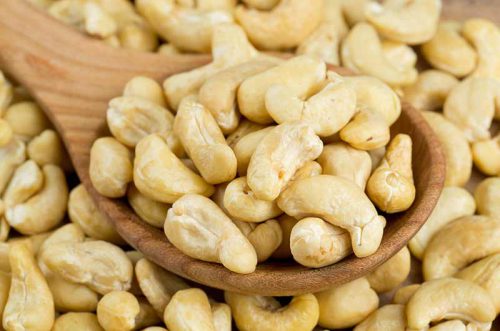 Botanical name: Anacardium occidentale (the cashew tree) Cashew nuts are well-known kidney-shaped nuts that are light-coloured, delicate in flavour, and slightly spongy in texture. Cashew nuts belong to the same family as the mango and pistachio nut. They are actually seeds that adhere to the bottom of the cashew apple, which is the fruit of the cashew tree. Cashew nuts in the shell are not available in stores since the interior of their shells contains a caustic resin known as cashew balm. This resin, which is toxic, must be removed before they are fit for consumption. Cashew balm is used in varnishes and insecticides. Sizes: 750g / 22.68kg Minimum order: 10x750g / 1x22.68kg
Botanical name: Anacardium occidentale (the cashew tree) Cashew nuts are well-known kidney-shaped nuts that are light-coloured, delicate in flavour, and slightly spongy in texture. Cashew nuts belong to the same family as the mango and pistachio nut. They are actually seeds that adhere to the bottom of the cashew apple, which is the fruit of the cashew tree. Cashew nuts in the shell are not available in stores since the interior of their shells contains a caustic resin known as cashew balm. This resin, which is toxic, must be removed before they are fit for consumption. Cashew balm is used in varnishes and insecticides. Sizes: 750g / 22.68kg Minimum order: 10x750g / 1x22.68kg
Recommended Applications
-
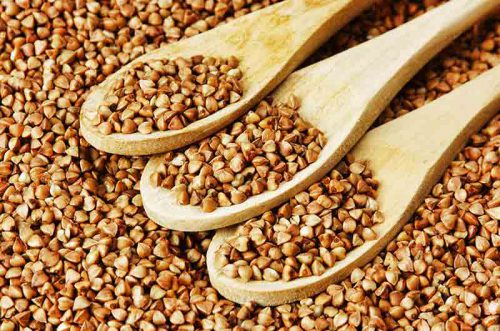 Botanical name: Fagopyrum esculentum Buckwheat is often referred to as a cereal grain, however it is actually a fruit seed and is similar in size to wheat kernels, but it has its own unique triangular shape. During growth stage, the plant flowers produce a beautiful fragrance which is attractive to bees who use the pollen to produce a unique dark honey. Buckwheat is ideal for consumers who are sensitive to grains that contain gluten. Its name is supposedly derived from the Dutch word bockweit, which means "beech wheat," reflecting buckwheat's beechnut-like shape and its wheat-like characteristics Sizes: 1kg / 25kg Minimum order: 10x1kg / 1x25kg
Botanical name: Fagopyrum esculentum Buckwheat is often referred to as a cereal grain, however it is actually a fruit seed and is similar in size to wheat kernels, but it has its own unique triangular shape. During growth stage, the plant flowers produce a beautiful fragrance which is attractive to bees who use the pollen to produce a unique dark honey. Buckwheat is ideal for consumers who are sensitive to grains that contain gluten. Its name is supposedly derived from the Dutch word bockweit, which means "beech wheat," reflecting buckwheat's beechnut-like shape and its wheat-like characteristics Sizes: 1kg / 25kg Minimum order: 10x1kg / 1x25kg
Recommended Applications
-
-
 Botanical name: Panicum miliaceuem/Setaria italica (most common food types) Millet is another food of the seed group, although commonly referred to as a grain. It does not contain gluten and thus is a perfect substitute for gluten sensitive consumer. Millet can be served in a variety of ways from a fluffy consistency through to a mashed potato like texture. Millet is small and round shaped and can vary widely in colour depending from which geographical region it comes. Most often it is a white to yellow colour. Sizes: 1kg / 25kg Minimum order: 10x1kg / 1x25kg
Botanical name: Panicum miliaceuem/Setaria italica (most common food types) Millet is another food of the seed group, although commonly referred to as a grain. It does not contain gluten and thus is a perfect substitute for gluten sensitive consumer. Millet can be served in a variety of ways from a fluffy consistency through to a mashed potato like texture. Millet is small and round shaped and can vary widely in colour depending from which geographical region it comes. Most often it is a white to yellow colour. Sizes: 1kg / 25kg Minimum order: 10x1kg / 1x25kg
Recommended Applications
-
-
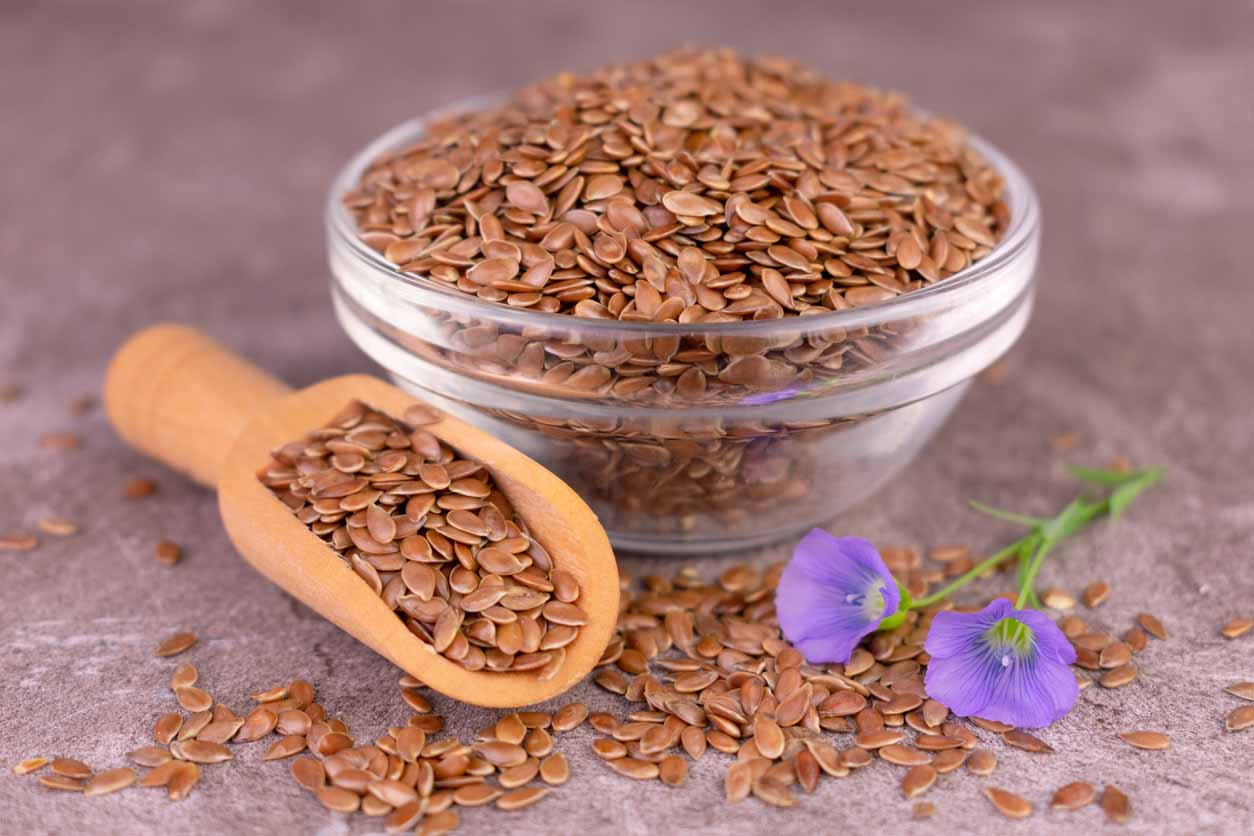 Organic brown flax seed, also known as linseed, comes from the flax plant, which is cultivated for its seeds as well as its fiber. Organic brown flax seed is an excellent source of fiber, and also the most widely available botanical source of omega-3 fatty acids. While flax seeds can certainly be consumed whole, unless they are thoroughly chewed and broken apart, they will pass through you undigested, robbing you of their many nutritional benefits. Grinding flax seed is a great way to ensure complete digestion and creates new opportunities to incorporate flax into your everyday diet. Sizes: 1kg / 25kg Minimum order: 10x1kg / 1x25kg
Organic brown flax seed, also known as linseed, comes from the flax plant, which is cultivated for its seeds as well as its fiber. Organic brown flax seed is an excellent source of fiber, and also the most widely available botanical source of omega-3 fatty acids. While flax seeds can certainly be consumed whole, unless they are thoroughly chewed and broken apart, they will pass through you undigested, robbing you of their many nutritional benefits. Grinding flax seed is a great way to ensure complete digestion and creates new opportunities to incorporate flax into your everyday diet. Sizes: 1kg / 25kg Minimum order: 10x1kg / 1x25kg
-
-
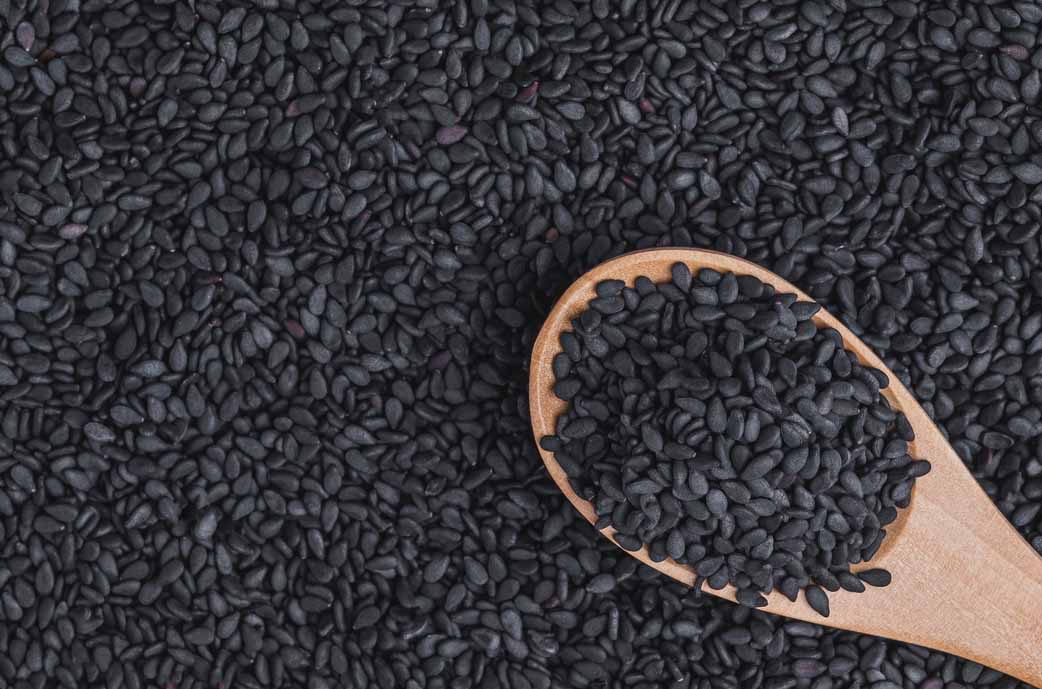 Black Sesame Seeds are derived from the sesame plant, which is one of the oldest oilseed plants known to man. Black sesame seeds have a rich nutty flavour, making them a delicious addition to curries or simply eaten straight from the pack, for a protein-rich snack. Although it is an oily seed, the fat content is largely of the unsaturated variety, making it one of the healthier cooking oils to use. There is a substantial difference between the calcium content of peeled (hulled) versus unpeeled (unhulled) sesame seeds. When the hulls remain on the seeds, one tablespoon of sesame seeds provides about 88mg of calcium. hen the hulls are removed, this same tablespoon will provide about 37mg (nearly 60% less). Sizes: 1kg / 25kg Minimum order: 10x1kg / 1x25kg
Black Sesame Seeds are derived from the sesame plant, which is one of the oldest oilseed plants known to man. Black sesame seeds have a rich nutty flavour, making them a delicious addition to curries or simply eaten straight from the pack, for a protein-rich snack. Although it is an oily seed, the fat content is largely of the unsaturated variety, making it one of the healthier cooking oils to use. There is a substantial difference between the calcium content of peeled (hulled) versus unpeeled (unhulled) sesame seeds. When the hulls remain on the seeds, one tablespoon of sesame seeds provides about 88mg of calcium. hen the hulls are removed, this same tablespoon will provide about 37mg (nearly 60% less). Sizes: 1kg / 25kg Minimum order: 10x1kg / 1x25kg
Recommended Applications

